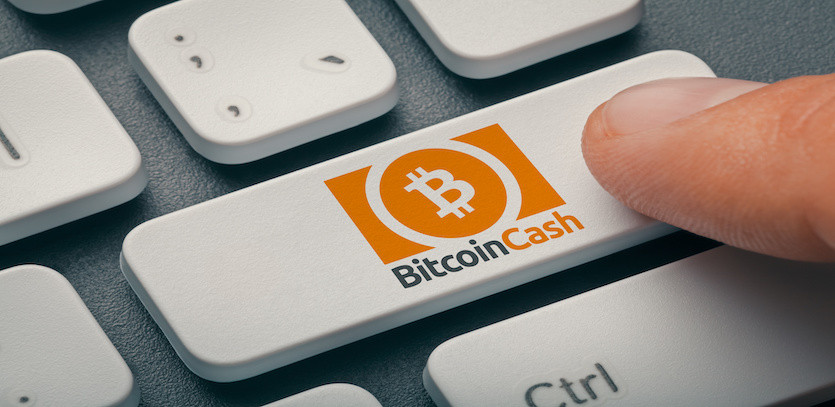Understanding Bitcoin's Limitations
As the premier cryptocurrency, Bitcoin (BTC) boasts immense popularity yet suffers from a notable downside. Its capability to handle only a low number of transactions per second makes it less than optimal for payment purposes.
Birth of Bitcoin Cash
To resolve this issue, Bitcoin Cash (BCH) emerged in 2017, promising a swifter, cost-effective method for processing payments. Since its inception, Bitcoin Cash has ascended the ranks to become one of the leading 15 cryptocurrencies in today's market.
Defining Bitcoin Cash
Sharing the same blockchain foundation as Bitcoin, Bitcoin Cash sprung to life on August 1, 2017, following a contentious "hard fork" of the Bitcoin blockchain.
A section of the Bitcoin blockchain community advocated for tweaking the rules to enable Bitcoin to handle a higher volume of transactions. The majority, however, voted against this change, leading to the hard fork and the simultaneous existence of two separate blockchain paths with a shared lineage—Bitcoin and Bitcoin Cash.
Henrik Gebbing, co-founder and co-CEO of Finoa, a digital asset custodian, likens this split to a religious schism, with miners, exchanges, and market participants forced to choose sides and determine the new currency's worth.
The Mechanics of Bitcoin Cash
Unlike Bitcoin, which caps blocks at 1 megabyte (MB) and thus can process only about seven transactions per second, Bitcoin Cash started with an 8 MB block size, eventually escalating it to 32 MB. This enlarged block size empowers it to process over 100 transactions per second.
Aside from block size and transaction speed, Bitcoin Cash operates very similarly to Bitcoin. It maintains the open-source, decentralized digital ledger model, using proof of work where miners earn Bitcoin Cash tokens as rewards for confirming and adding transactions to the blockchain using cryptography. Like Bitcoin, it has a maximum supply of 21 million coins.
Bitcoin vs. Bitcoin Cash: Spotting the Differences
The crucial difference between Bitcoin and Bitcoin Cash lies in the block size, with Bitcoin Cash's larger block size allowing for swifter and cheaper transactions. A typical Bitcoin transaction incurs a $59 fee, while a Bitcoin Cash transaction costs less than a penny.
However, the rapid processing of Bitcoin Cash can potentially compromise its security due to the reduced requirement for miners to verify transactions. According to Daniel R. Hill, president of Hill Wealth Strategies in Virginia, Bitcoin Cash is suitable for smaller transactions like a cup of coffee, whereas more significant, crucial purchases warrant the slower but more secure Bitcoin.
The market size disparity between the two is also notable. At the time of writing, Bitcoin Cash has a total market capitalization of approximately $7.1 billion, a mere fraction of Bitcoin's hefty $881 billion market cap.
Pros and Cons of Bitcoin Cash
Bitcoin Cash's key advantages include quicker, cost-effective transactions, greater scalability than Bitcoin, decentralization, and accessibility. However, it grapples with issues like a relatively low adoption rate, weaker security, branding difficulties, and environmental concerns stemming from its proof of work system.
How to Acquire Bitcoin Cash
Major cryptocurrency exchanges like Coinbase and Kraken offer Bitcoin Cash. After setting up an account and depositing funds, you can buy Bitcoin Cash or other cryptocurrencies. Platforms like PayPal also support Bitcoin Cash purchases.
Post-purchase, you can either hold Bitcoin Cash as an investment in a crypto wallet, trade it for other coins, or use it for transactions. However, be aware of the branding confusion around Bitcoin Cash, which has caused issues such as the crypto exchange OKCoin delisting Bitcoin Cash in early 2021 to prevent investor confusion.
Deciding Between Bitcoin Cash and Bitcoin
Your decision to invest in Bitcoin Cash or Bitcoin should depend on whether you seek a long-term investment or a transactional tool.
Gebbing notes that the BCH price, when measured in BTC, has consistently declined since Bitcoin Cash's inception, suggesting that Bitcoin may be a safer investment. However, for transactions, Bitcoin Cash can be a superior choice due to its larger block size and lesser chain utilization.
Russell Star, head of capital markets at DeFi Technologies, cautions potential investors to prepare for the volatility that characterizes crypto investments. He suggests considering a broader spectrum of cryptocurrencies beyond popular choices like Bitcoin and Ethereum.
Despite Bitcoin Cash's promising concept, it has yet to achieve its ambitious aim of supplanting Bitcoin. If it gains wider acceptance as a medium of exchange, it might challenge its older, larger counterpart more effectively.
To conclude...
Despite the similarities, Bitcoin and Bitcoin Cash serve different purposes. Bitcoin continues to reign as a valuable long-term investment option, largely due to its market dominance and proven stability. However, Bitcoin Cash, with its increased transaction speed and lower fees, holds promise as a practical digital currency for everyday use. Yet, it still has to overcome significant hurdles such as low adoption rates and branding confusion. In the rapidly evolving world of cryptocurrencies, it's crucial to thoroughly assess each option's pros and cons, understand your personal financial goals, and consider the level of risk you're willing to take before making an investment decision.





